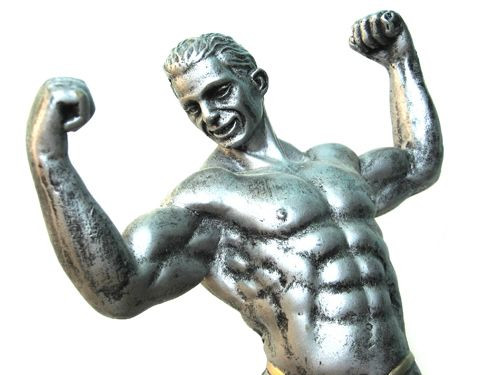Men May Age Faster Due To Drop In… Estrogen? How Losing Sex Hormones Makes You Feel Old

Most young men are dreading the day when their six-pack abs will bloat into a permanent beer belly or when their zealous libido morphs into a whimpering “libi-don’t”.
Testosterone decline, which occurs naturally during age, was long thought to be sole reason for these middle-aged transformations. However, new evidence from Massachusetts General Hospital suggests estrogen – more commonly associated with female menopause – mediates some symptoms of “andropause” in men.
The idea of male menopause has solidified itself into medical culture in recent years, which has been matched by a tremendous boost in doctor’s prescriptions for testosterone supplements. A 500 percent increase in prescriptions was recorded between 1993 and 2000, and this pattern continued over the course of the following decade.
This supplement boom occurred, despite the fact that it is not completely understood why testosterone deficiency causes physical symptoms – like muscle loss, weight gain, lowered sex drive, and fatigue – in middle-aged men.
Hormonal Process Of Elimination
New findings, reported today in the New England Journal of Medicine, try to resolve this matter by exploring how sex hormones, outside of testosterone, impact male menopause. In particular, they look at estrogen, whose age-related decline causes similar physical changes in women during menopause.
Testosterone and estrogen live on opposite sides of a single enzymatic coin.
Estrogen is a derivative of testosterone that is synthesized by the enzyme aromatase. Women make more estrogen than men because their primary sex organ – the ovaries – is packed with aromatase; however, men carry steady levels of the enzyme in their skin, brains, and fat tissue.
To assess estrogen’s potential role in male menopause, researchers at Mass General recruited 400 healthy men aged 20 to 50 and had them take a drug that artificially deprived them of testosterone.
The subjects were then divided into groups that received a testosterone supplements at a range of doses -- 1.25-, 2.5-, 5-, 10- grams per day – or they took a placebo. Concurrently, a subset of these testosterose-dosed men were then asked to take a drug that suppressed aromatase and subsequently their ability to make estrogen.
This setup allowed the researchers to compare estrogen loss with and without testosterone deficiency. The treatments were administered for 16 weeks.
The most adverse effects of estrogen deficiency were on sexual desire – with men in this group reporting dramatic declines in arousal and erectile function. Losing estrogen did not impact lean mass, muscle size or leg strength anymore than testosterone deprivation. Estrogen also appeared to control fat production.
"This study establishes testosterone levels at which various physiological functions start to become impaired, which may help provide a rationale for determining which men should be treated with testosterone supplements," said lead author Dr. Joel Finkelstein of the Mass General Endocrine Unit.
Although this experiment depended on the artificial manipulation of sex hormones, it does provide clues into the functions of both estrogen and testosterone in middle-aged men. Overall, the results suggest that testosterone governs muscle size and strength, while estrogen mediates weight gain. Both hormones seemed crucial to sex drive.
“The biggest surprise was that some of the symptoms routinely attributed to testosterone deficiency are actually partially or almost exclusively caused by the decline in estrogens that is an inseparable result of lower testosterone levels," continued Dr. Finkelstein. "We also need to look into how testosterone replacement therapy would effect prostate health – both prostate cancer and the prostate enlargement that causes unpleasant symptoms in many older men – and heart disease."
Source: Finkelstein JS, Lee H, Burnett-Bowie SM, et al. Gonadal Steroids and Body Composition, Strength, and Sexual Function in Men. The New England Journal of Medicine. 2013.



























